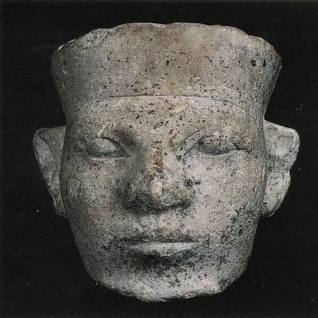
Sergey Karaganov was interviewed by Bruno Macaes for The New Statesman ( 2 April 2022) see Note 1. Karaganov speaks with the fluency and calm assurance of someone closely connected to power. His tone is factual and if anything a little weary of his audience as if to say ‘I have told you this before but you won’t listen.’
He outlined Russia’s concerns and objectives in simple language with exquisite brevity. Unlike so many commentators in the West he highlights the most obvious strategic issue: if not now when? Given US ambitions the strategic situation was not stable where a US game plan involved aggressive arming of Ukraine. It could be the West’s intention was to create a situation where Russia would have no practical options. Unspoken is the question: should Russia wait quietly until it is in a checkmate?
But the most important statements from Karaganov appear to have gone over the head of his interviewer or of the sub-editor who takes for a title a statement entirely out of context.
Karaganov’s key statements are :
- ’ We all feel like we are part of a huge event in history, and it’s not just about war in UKraine’.
- ‘Two other objectives have been added: one is the demilitarisation of Ukraine; the other is denazification because there are people in the Russian government (who) think it is beginning to resemble Germany in the 1930’s’
- ‘Globalisation in this (present) form is finished’
- ‘ during the past 500 years the foundation of Western power was the military preponderance of Europeans.’
- ‘I know as a historian that Article 5 of the Nato treaty is worthless. I also know from the history of American nuclear strategy that the US is unlikely to defend Europe with nuclear weapons.’
- ‘If we could have solved the crisis peacefully there’s no question that parts of Europe would have orientated themselves not towards Russia but Greater Eurasia, of which Russia would be a key part’
- ‘This war is a kind of proxy war between the West and the rest – Russia being, as it has been in history, the pinnacle of ‘the rest’ – for a future world order.’
- ‘ the West will never recuperate but it doesn’t matter if it dies …’
- ‘People like myself and others are questioning the moral foundations of Western civilisation.’
- ‘ under circumstances of great tension, democracies always wither away or become autocratic. These changes are inevitable’.
These statements apparently so clear, need decoding. The reference to Germany in 1930’s is to race war against Russia. Hitler did not consider Russians ‘white’. West Ukrainians consider themselves ‘European and blue eyed’ and not like Eastern Ukrainians and slavs. Wheares for a large part of its history Russia sought to emulate the West and to ‘join it’, it has now been shuttered out. The so-called ‘Allies’ recently celebrated victory in WW2 by including Germany `(the opposition) and excluding Russia ( a crucial ally). Western commentators are remarkably tone-deaf and think that references to Nazis are to Zellensky and not to themselves who for many years tolerated Nazism in the 1930’s to Russia’s cost.
He sees Russia as part of Greater Eurasia and distances Russia from the West. In two places he clearly places Europe as not morally admirable. First, he places Europe’s dominance solely on naked military power, and then he questions the moral basis of Western civilisation. Finally, he suggests that Europe is making a great strategic error in relying on the US nuclear shield (which he thinks is worthless) and in seeking to use non-Russian gas. Germany, a major manufacturing exporter, is proposing to use much more expensive seed material (gas) than its Asian competitors. This would be a windfall for Asian manufacturers and possibly a mortal wound for Germany- the beating heart of Europe. No wonder Karaganov says Europe may wither but it does not matter (Asian countries will take up the slack). In the process of withering and the tensions that arise from that, their democratic freedoms may need to be curtailed.
Finally and most important of all, these statements all add up to his conclusion that Ukraine is a ‘proxy war’ between the West and ‘the rest’. These are shorthand for Whites versus Non-Whites. Only race can explain the exclusion of a capitalist Russia from the European ‘family of nations’; only race can explain the exclusion of Russia from WW2 celebrations that include Germany; only ‘race’ can explain his cryptic remark about questioning the moral foundations of Western civilisation; only apparent ‘race’ can explain the split between West Ukraine and East Ukraine; and only race can distinguish Europe from Eurasia. This new world order that is being fought over is clearly not a fight between capitalism and socialism but, in Karaganov’s view, over the world’s future racial order.
Notes 1

